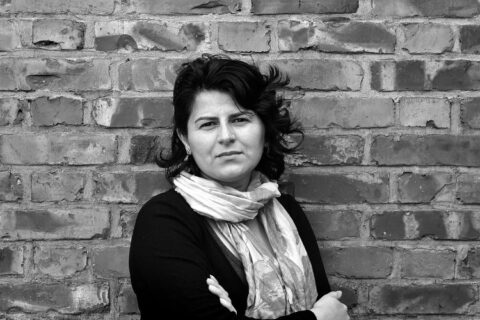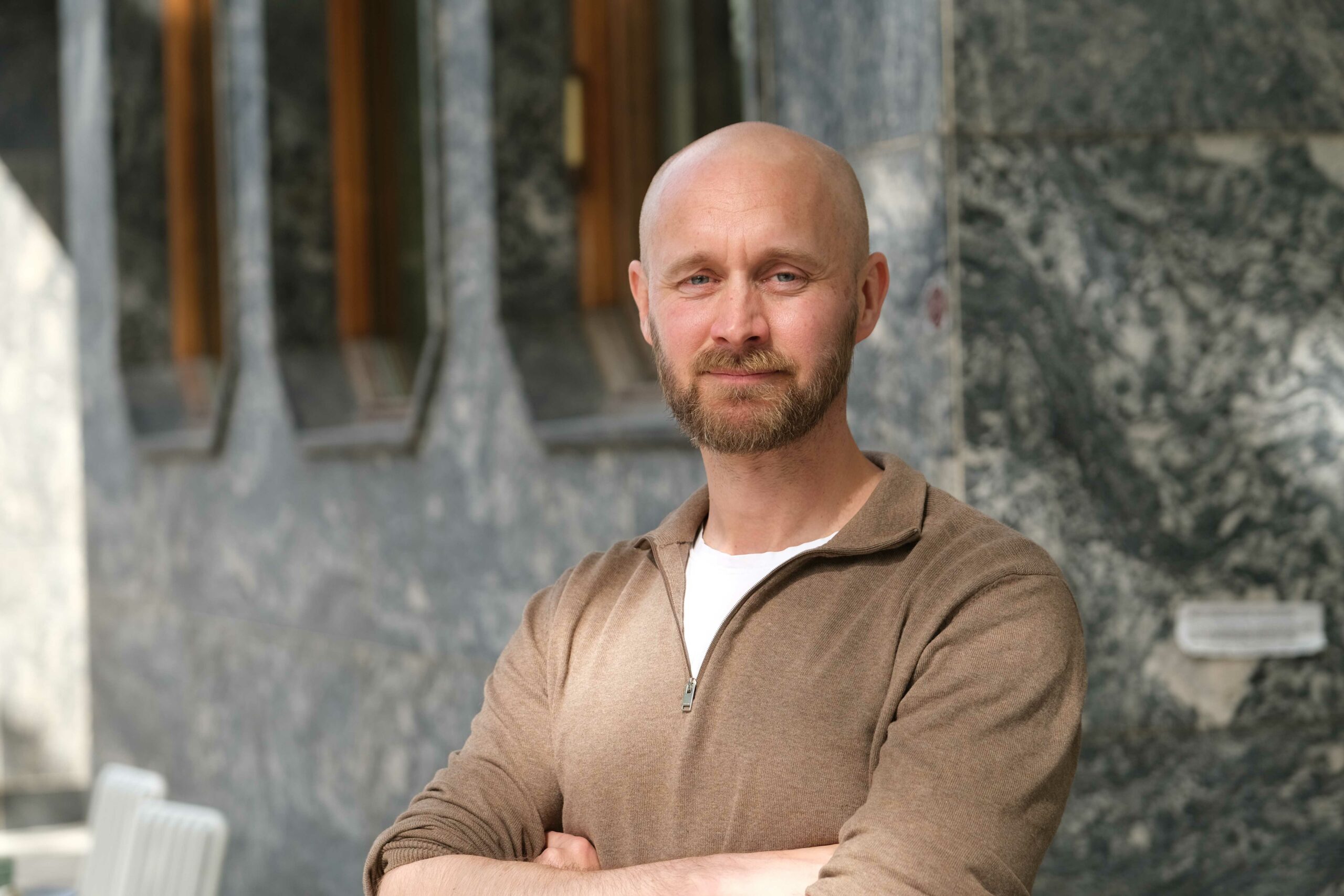Tale av Gunel Movlud
Publisert den 14. mar 2018
Litteratur for inkludering har satt feminisme som sitt hovedtema for mars måned. Gunel Movlund er friby-forfatter og hun var en av deltakerne på arrangementet "Poesi og dagens feminisme" som ble arrangert 6. mars. Under kan du lese talen hun fremførte i forbindelse med arrangementet.
Azerbaijan
Feminism in modern Azerbaijan poetry
First of all, let me tell you a story. About 15 years ago, I had a friend. She wrote courageous poems. She was writing about women, liberty, and equality. Once her poem about masturbation was printed. It was a very shocking and unexpected poem for the patriarchal muslim Azerbaijan society. It has been being told about this poem for exact 15 years in my country. But that poetess does not exist any-more. I mean she exists as a human, as a woman; but she does not exist as a poetess. She rejected her identity. She rejected her pen-name. She rejected that poem. Then she rejected all of her poems.
Now she has a husband and 3 children. When she goes out she needs to get a permission from her husband. She has a facebook page, but her husband manages it. She writes sexist tales for children. Boys are always mighty and girls are always dolls in her tales. Sometimes she gives interviews and talks about the importance of virginity for a woman to be well-behaved. She claims that a woman cannot be fortunate without a family, husband and children.
She is no longer a friend of mine. 15 years ago I loved her thoughts about liberty, equality, modernity and her independent soul as a woman. Sometimes she calls me and wants to communicate with me. I do not answer or tekk her for not to call me again. Maybe it seems cruel but I cannot forgive her because she not only scarified herself; but also our – modern poetesses’ novator, contemporary, feminist, free model to patriarchal society. She is a symbol of fiasco of the first step of feminism in modern Azerbaijan poetry.
However, I cannot blame her. Because she faced such hatrede, denounces, pressures, her anxiety escalated after that poem about masturbation. There were 5-6 friends who supported her, but hundreds, thousands of people who hated and wanted to shame her. She did not find her liberation in keeping her own way, ignoring the pressure, fighting. She chosed a shelter behind a men’s protected by man’s hands as her liberation.
In result, she did not trust in women, but men. She did not trust in women’s power, but men’s.
But it was not only her choice, it was a continuation of a long tradition.
Let’s go back a little.
Let’s begin with the fact that Azerbaijan is an ex-soviet country. That’s why, poetry as most of fields, was connected to politics for 70 years in the 20th century. Soviet socailistic politics accepted a woman as an active citizen, communist, hard-working, kolkhozist or worker. Then a woman was wife, mother, sister. Woman’s individium, life, fortune as a pure woman was impossible in politics, so it was not possible in poetry too. Azerbaijanian poetesses had to write masculinized poems because of this politics over 70 years. Their poems were about either homeland, or war, or kolkhoz, or the happiness of a woman serving to her family. But this happiness could not belong to women individually. A woman could not be happy without family, homeland, children, and labour. She could not have any problems except those ones.
Poetesses began to write poems partly related to feminism in 2000s. They were a few because the reaction of the society was brutal. If there was something about drinking, cigarettes, lovers, or liberty in their poems, this meaterial was immediately rated as immoral by the patriarchal society. The women who were describing a woman alone, writing woman’s love to freedom, and equality were quickly faced with hate and pressure urgently. They were facing sexual harassment in the street and the workplace. They encountered family pressure of the family, especially fathers and brothers. There were actions of hate and pressure against them in the virtual world. Some drawed back. This backdown happened either through marriage, as my ex-friend, or as stopping to write and disappear as a writer, or as changing topic to go back to old themes such as ‘woman is honesty, mother, sister’, propogandizing patriarchal values.
Only 3-4 poetesses have remained active in recent 20 years. They could portray women in Azerbaijan poetry as an individual, a persoa. Azerbaijan women were partly released from the status of a mother in the houshold, or a devoted wife due to these poetesses’ poems. They tried to explain to people that, a woman is a valuable individual without being a mother or someone’s honest wife.
Interestingly, namely these poetesses started to popularize equality in daily and social life. For 15 years my friends and I have explained to women that they have to pay their bill in cafes with their male friends and boyfriends. Most women in Azerbaijan think that if they go to cafe or restaurant with their boyfriend, the man has to pay the bill. If they are married, the husband has to cover family expenses. They ask that, if men do not do this, why do they need men?
We explain that, negative discrimination starts from the positive one. So, the man who pays the bill because of you being a woman, will demand you to obey him tomorrow, because of that you are a woman. Equality should be unconditional.
Unfortunately, when the modern world poetry is developing on ecology, civil activism and different other concepts, we try to popularize very primitive orders, very basic values, most primitive equality in Azerbaijan in our poems. We write about basic women’s right.
However, there are positive changes. The youth who have been affected by those poems, are active, engaged in politics, far away from patriarchal values. They try to spread feminist values among their friends. Interestingly, we can often see young feminist men. It is strange and pleasant for a patriarchal country.
There is no serious success of feminist literature in Azerbaijan society but we are glad that we founded this literature, this genre. We started a new tradition and cleaned the path ways from big stones for the next feminist generation. Of course, it will not be easy for them either because they will have to work and write in a quite patriarchal country. Anyway, we hope they will see the ones who have fought before them, get inspired and not go back.
Photo credit: Espen Rønning




